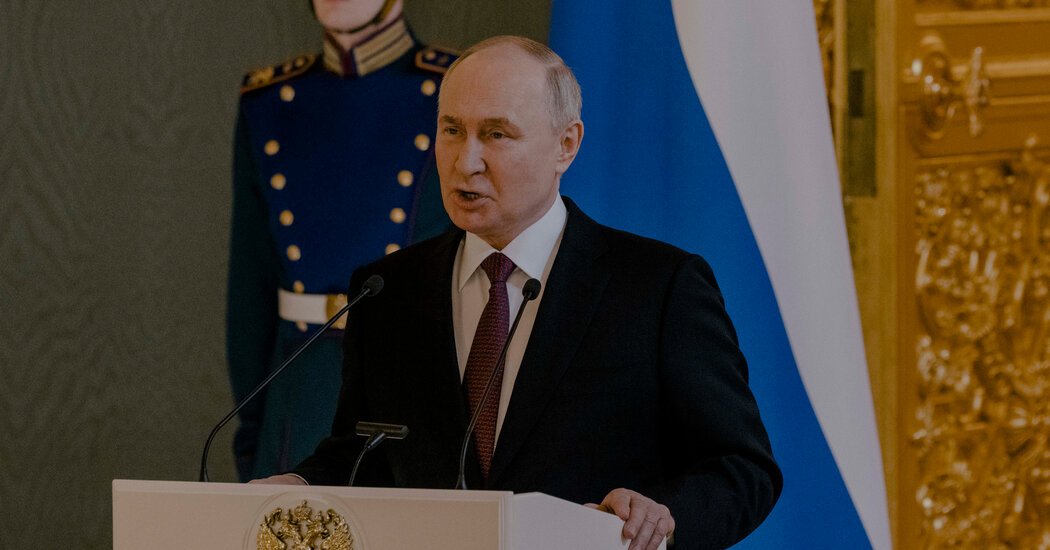Less than a week ago, President Vladimir V. Putin of Russia claimed a fifth term as president with his highest-ever share of the vote, using a stage-managed election to show the nation and the world that he was firmly in control.
Just days later came a searing counterpoint: His vaunted security apparatus failed to prevent Russia’s deadliest terror attack in 20 years.
The attack, which killed at least 133 people at a suburban Moscow concert hall, was a blow to Mr. Putin’s aura as a leader for whom national security is paramount. That’s especially true after two years of a war in Ukraine that he describes as key to the nation’s survival — and which he cast as his top priority in the aftermath of last Sunday’s election.
“The election demonstrated a seemingly confident victory,” Aleksandr Kynev, a Russian political scientist, said in a phone interview from Moscow. “And suddenly, against the backdrop of a confident victory, there’s this demonstrative humiliation.”
It took Mr. Putin more than 19 hours to address the nation about the attack, the deadliest in Russia since the 2004 school siege in Beslan in the country’s south that claimed 334 lives. When he did, Mr. Putin said nothing about the mounting evidence that the attack was committed by a branch of the Islamic State.
Instead, he hinted that Ukraine was behind the tragedy and said the assailants acted “just like the Nazis,” who “once carried out massacres in the occupied territories”— evoking his frequent, false description of present-day Ukraine as being run by neo-Nazis.
“Our common duty now — our comrades at the front, all citizens of the country — is to be together in one formation,” Mr. Putin said at the end of his five-minute speech, trying to conflate the fight against terrorism with his invasion of Ukraine.
The question is how much of the Russian public will buy into his argument. They might question whether Mr. Putin, with his invasion of Ukraine and his conflict with the West, truly has Russia’s security interests at heart — or is he woefully forsaking them, as many of his opponents say he is.
The fact that Mr. Putin apparently ignored a warning from the United States about a potential terrorist act is likely to deepen the skepticism. Instead of acting on the warnings, and tightening security, he dismissed them as “provocative statements.”
“All this resembles outright blackmail and an intention to intimidate and destabilize our society,” Mr. Putin said on Tuesday in a speech to the F.S.B., Russia’s domestic intelligence agency, referring to Western warnings. In the aftermath of Friday’s attack, some of his exiled critics have cited that response as evidence of the president’s detachment from Russia’s true security concerns.
Mr. Kynev said he believes that many Russians are now in “shock,” because “restoring order has always been Vladimir Putin’s calling card.” But given the Kremlin’s efficacy in cracking down on dissent and on the news media, he predicted that the political consequences of the attack would be limited, as long as the violence is not repeated.
“To be honest, our society has gotten used to keeping quiet about inconvenient topics,” he said.
Even as the Islamic State repeatedly claimed responsibility for the attack, and Ukraine denied any involvement, the Kremlin’s messengers pushed into overdrive to try to convince the Russian public that this was merely a ruse.
Olga Skabeyeva, a state television host, wrote on Telegram that Ukrainian military intelligence had found assailants “who would look like ISIS. But this is no ISIS.”
Margarita Simonyan, the editor of the state-run RT television network, wrote that reports of Islamic State responsibility amounted to a “basic sleight of hand” by the American news media.



